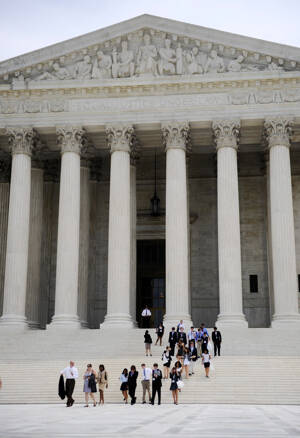The U.S. Supreme Court has left standing a lower court ruling that will allow an Oregon man to try to hold the Vatican financially responsible for his sexual abuse by a priest, if he can persuade the court that the priest was an employee of the Holy See. By declining to take Holy See v. John Doe, the court June 28 left intact the 9th U.S. Circuit Court of Appeals ruling that said because of the way Oregon law defines employment, the Vatican is not protected under the Foreign Sovereign Immunities Act from potential liability for the actions of a priest who Doe, the unidentified plaintiff, said sexually abused him in the 1960s. The case will now go back to U.S. District Court, where Doe's attorneys will attempt to prove that the late Andrew Ronan, a former Servite priest who was laicized in 1966, was a Vatican employee at the time the events took place. Jeffrey Lena, the California-based attorney for the Holy See, told Catholic News Service June 29 that the court's action in declining to review the case "is not a comment on the merits" of the underlying legal arguments. The Supreme Court is not focused on the merits as the certiorari stage, he noted. Instead, the court's focus is on whether the case assists in unifying federal law and whether it is appropriate to the court's docket for the next term. Lena said many things can account for the court's reluctance to take the case, not the least of which is that the legal questions it raises have matured to the point where the court can resolve differences which have developed among lower courts about how to apply the law.
Supremes Decline Vatican Liability Case
Show Comments (
)
Comments are automatically closed two weeks after an article's initial publication. See our comments policy for more.
The latest from america
“His presence brings prestige to our nation and to the entire Group of 7. It is the first time that a pope will participate in the work of the G7,” Italian Prime Minister Giorgia Meloni said.
“Many conflicting, divergent and often contradictory views of the human person have found wide acceptance … they have led to holders of traditional theories being cancelled or even losing their jobs,” the bishops said.
Robots can give you facts. But they can’t give you faith.
“Irena’s Vow” is true story of a Catholic nurse who used her position to shelter a dozen Jews in World War II-era Poland.








